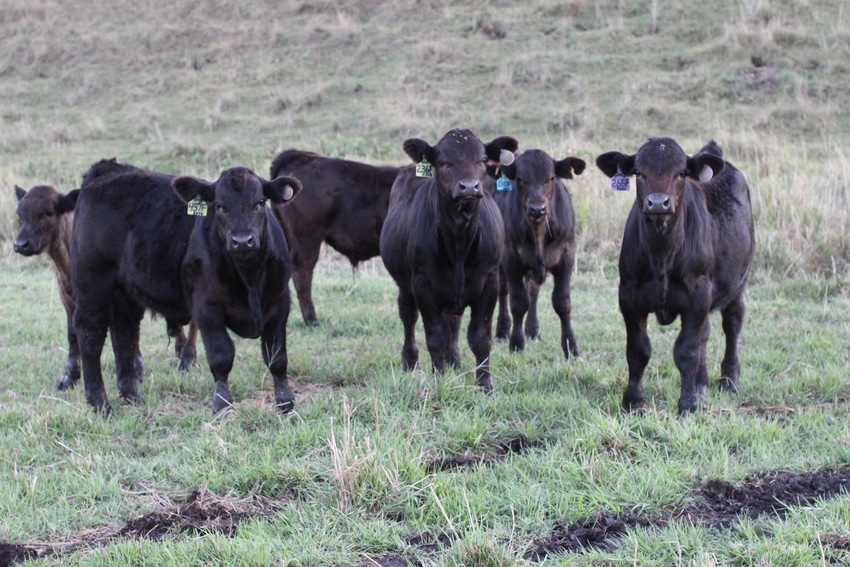It’s not regulations, it’s retailers you should worry about
Consumers may demand food retailers crack down on antibiotic use. What does this mean for beef producers?
October 23, 2018

These days, everybody has a cause — something that matters to them and aligns with their personal value systems. Typically, people show their support for the causes they care about most though social media promotions and with their wallets.
The trend of buying goods and services based on a higher set of morals and values seems to be very common amongst those in my generation — the millennial crowd. In fact, in many circles, it has become more important to purchase things based on ethics above price, convenience or availability.
Of course, this trend permeates agriculture and food production, as well. For example, despite Chipotle’s shameful fall with recent, recurring food safety issues, people still flock to this fast food burrito chain because their message of “natural” and “no antibiotics” resonates with their target audience.
A recent article from the Natural Resources Defense Council (NRDC) highlights how consumers “vote with their dollars” when they select which burger joints to eat at.
NRDC Acting Director of Food and Agriculture Lena Brook writes, “People want better burgers and the companies taking note are seeing better business. With more of these miracle drugs going to cows than to people, the beef industry has a responsibility — and an opportunity — to help keep them working when sick people and animals need them. Most fast food restaurants are putting burger lovers in a bind. If they want responsibly raised meat, right now, chicken is the best choice at many mainstream chains.”
READ: Antibiotic stewardship: A veterinarian's perspective
The article details how 22 of the nation’s 25 largest burger chains get an “F” grade for failing to source beef raised without routine antibiotics. Among this group includes McDonald’s and In-N-Out, both of which NRDC says “have publicly pledged to source meat raised without routine antibiotics but hasn’t committed to a timeline.”
Meanwhile, Wendy’s received a D- because the chain “buys 15% of its beef supply from producers that have reduced the use of one medically important antibiotic, Tylosin, by 20%. The policy represents progress, yet is far from comprehensive.”
According to the NRDC, they are an international nonprofit environmental organization with more than 3 million members and online activists who are working to protect the world’s natural resources, public health and the environment. The group only gives two “A” grades on their scorecard — Burger Fi and Shake Shack because both companies currently serve only beef raised without antibiotics.
In the article, which is riddled with misinformation surrounding antibiotic use in the livestock industry, Kari Hamerschlag, Friends of the Earth deputy director of food and agriculture, says, “In the absence of federal policy, companies must take action to address their contributions to this crisis. With so many antibiotics going to cattle, we urge the U.S. beef industry to follow the lead of the chicken industry and take decisive action on this issue. High-profile restaurants, like In-N-Out Burger and McDonald’s, must make good on their stated commitments to eliminate or significantly curtail the regular use of these drugs in their supply chain.”
Hamerschlag ignores the fact that the beef industry does follow stringent, already-in-place regulations regarding antibiotic use for cattle. Why should retailers need an antibiotics policy when there is already one in place, overseen by the USDA and FDA, which provide the framework for withdrawal periods, inspections and safety guidelines?
READ: Drugs in your meat? Not a chance!
However, the consumer doesn’t necessarily know about these current regulations. Nor do they understand the recent steps like the veterinary feed directive, which have tightened up the rules and brought greater restrictions on antibiotic use in livestock production.
As a result, they’ll read articles like this, and ultimately, many will decide to “vote with their dollars” by dining elsewhere. And they’ll put additional pressures on those popular “F-grade” retailers to beef up their policies, or else.
So what will that mean for beef producers? We may not see additional burdensome regulations, but we may soon see discounts for our cattle if they don’t comply with the demands of retailers and their customers.
The opinions of Amanda Radke are not necessarily those of beefmagazine.com or Farm Progress.
About the Author(s)
You May Also Like


.png?width=300&auto=webp&quality=80&disable=upscale)


